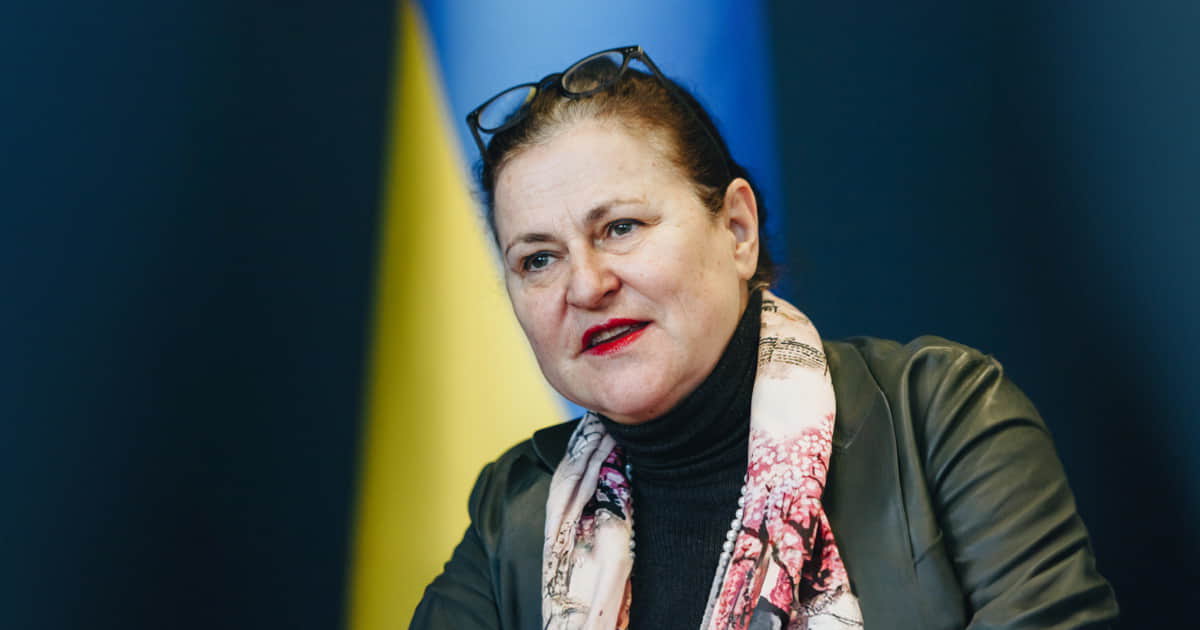EU Ambassador on assistance to Ukraine in preparing for winter and “Russian money” for the armed forces

Katarina Mathernova, Ambassador of the EU to Ukraine, began her work in Kyiv exactly a year ago, in September 2023. She has proven to understand our country perhaps better than any other high-ranking EU official. Over the past year, she has also learned Ukrainian to the point where she no longer needs an interpreter.
In the interview marking the anniversary of the start of her tenure, we focused on the upcoming winter of 2024, which looks set to be a very challenging one; whether Ukraine could join the EU by 2030; and the export of electricity from the EU to Ukraine. The ambassador also revealed details of a little-known scheme for supplying weapons to the Ukrainian Armed Forces using frozen Russian assets. Watch the full interview or read the slighty abridge version the article - "This is poetic justice for Ukraine.
Now Russia is paying for howitzers for Ukrainians." An interview with the EU Ambassador to Ukraine. Advertisement: I think that the goal that [European Council] President [Charles] Michel mentioned of Ukraine joining the EU by the end of this decade is not unrealistic. 2030 is realistic.
Ukraine, really four days after the full-scale invasion, applied to the EU. There is such momentum and political momentum in Ukraine, but it also kicked off a momentum in EU member states and in Brussels, that...You have broken the matrix! I very much hope that we will continue doing so.
There was a Directorate-General for Enlargement and a Commissioner for Enlargement. Then when enlargement was not really on the political agenda, it became "for Enlargement Negotiations". And now we are going back to Enlargement.
This very much reflects the shift in the political consensus or the inevitability of enlargement coming. Winter will not be easy. Particularly vulnerable are the three big cities - Kyiv, Kharkiv and Odesa - and the areas where there are towns and cities which have district heating, that's also a vulnerability. But I don't think that we are looking at a catastrophic scenario.
I hope I will not be proven wrong. We actually have been working on winter preparedness for a number of months, quite busily. First of all, there are active discussions with ENTSO-E - which is the operator of the European continental grid, to which Ukraine and Moldova are connected - about increasing the capacity of the interconnection.
The other thing that we have done is allocated EUR200 million in grants and a little bit for the repair of renewable energy sources. And what I would like to specifically mention, because this is one of the unsung heroes, is the EU Civil Protection Mechanism, which is the logistics and transport channel for all the big energy equipment to Ukraine, not only from the EU - from many, many other partners as well. This is also the mechanism through which we have sent over 1,000 large industrial generators and are now helping with the transportation of actual big turbines to help with the winter preparedness.
As for the war, this is a very positive and somewhat surprising story, perhaps. This is an area where High Representative Borrell [Josep Borrell, EU High Representative for Foreign Affairs and Security Policy] personally deserves thanks for very quickly after the full-scale invasion putting, really rolling, in place the European Peace Facility, which is a mechanism to incentivise and reimburse member states for weapons delivery. Even though Hungary has blocked a tranche, over EUR6 billion has been disbursed and weapons delivered to Ukraine from this mechanism. Altogether, it's around EUR45 billion of weapons deliveries from EU and member states.
But what the EU has done, we legislated already half a year ago about the use of the proceeds - the windfall profits from the frozen assets. The first EUR1.4 billion was disbursed in August, already a month ago, to several member states for new weapons deliveries, because this didn't have to go through unanimous approval. But what is much more important is that EUR400 million of this amount is going to the Ukrainian defence industry system developed by Denmark.
Denmark was the first country that has been contracting the delivery of the Bohdana howitzers.
If you notice an error, select the required text and press Ctrl + Enter to report it to the editors.